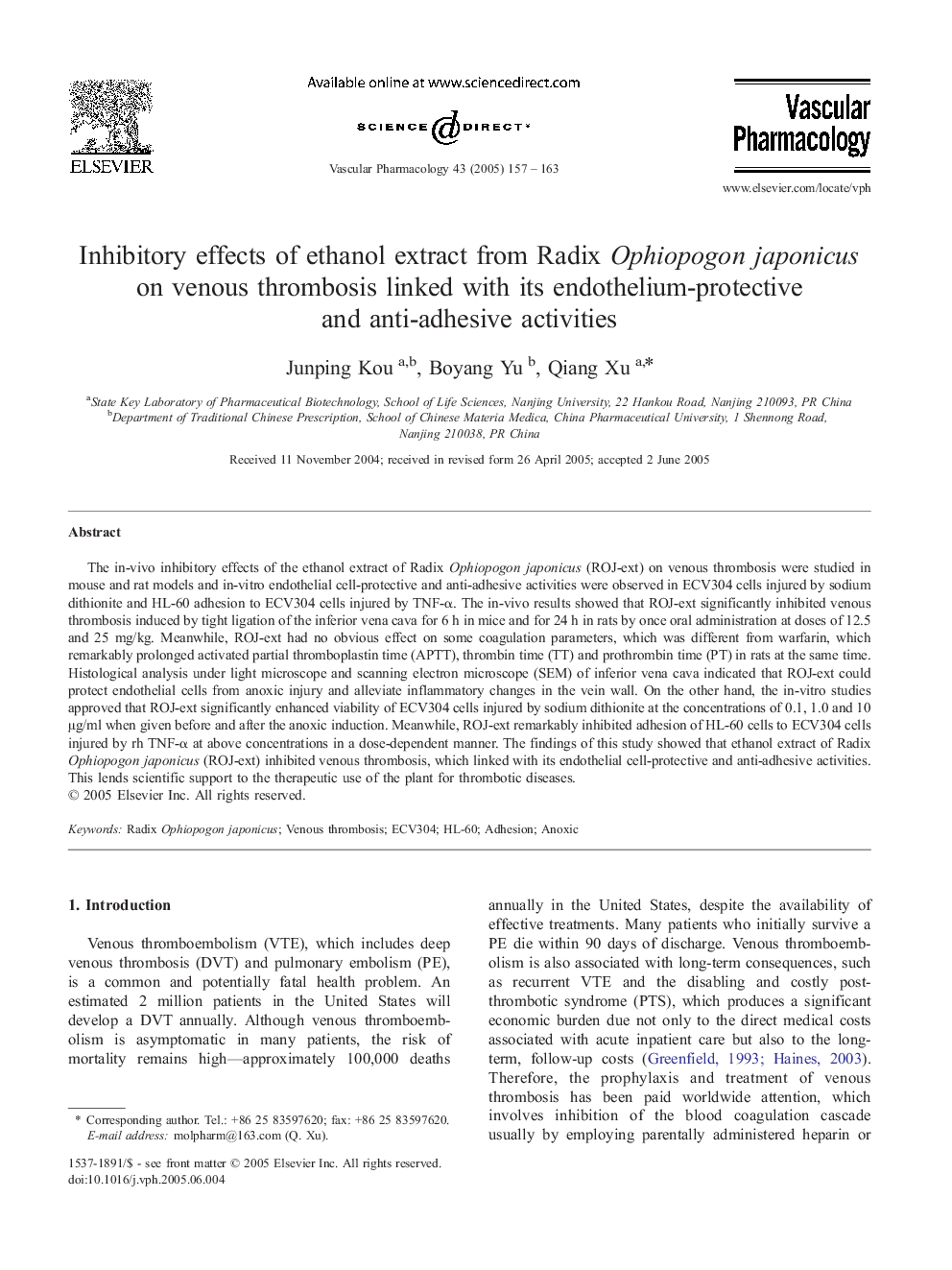| Article ID | Journal | Published Year | Pages | File Type |
|---|---|---|---|---|
| 9020893 | Vascular Pharmacology | 2005 | 7 Pages |
Abstract
The in-vivo inhibitory effects of the ethanol extract of Radix Ophiopogon japonicus (ROJ-ext) on venous thrombosis were studied in mouse and rat models and in-vitro endothelial cell-protective and anti-adhesive activities were observed in ECV304 cells injured by sodium dithionite and HL-60 adhesion to ECV304 cells injured by TNF-α. The in-vivo results showed that ROJ-ext significantly inhibited venous thrombosis induced by tight ligation of the inferior vena cava for 6 h in mice and for 24 h in rats by once oral administration at doses of 12.5 and 25 mg/kg. Meanwhile, ROJ-ext had no obvious effect on some coagulation parameters, which was different from warfarin, which remarkably prolonged activated partial thromboplastin time (APTT), thrombin time (TT) and prothrombin time (PT) in rats at the same time. Histological analysis under light microscope and scanning electron microscope (SEM) of inferior vena cava indicated that ROJ-ext could protect endothelial cells from anoxic injury and alleviate inflammatory changes in the vein wall. On the other hand, the in-vitro studies approved that ROJ-ext significantly enhanced viability of ECV304 cells injured by sodium dithionite at the concentrations of 0.1, 1.0 and 10 μg/ml when given before and after the anoxic induction. Meanwhile, ROJ-ext remarkably inhibited adhesion of HL-60 cells to ECV304 cells injured by rh TNF-α at above concentrations in a dose-dependent manner. The findings of this study showed that ethanol extract of Radix Ophiopogon japonicus (ROJ-ext) inhibited venous thrombosis, which linked with its endothelial cell-protective and anti-adhesive activities. This lends scientific support to the therapeutic use of the plant for thrombotic diseases.
Related Topics
Health Sciences
Medicine and Dentistry
Cardiology and Cardiovascular Medicine
Authors
Junping Kou, Boyang Yu, Qiang Xu,
